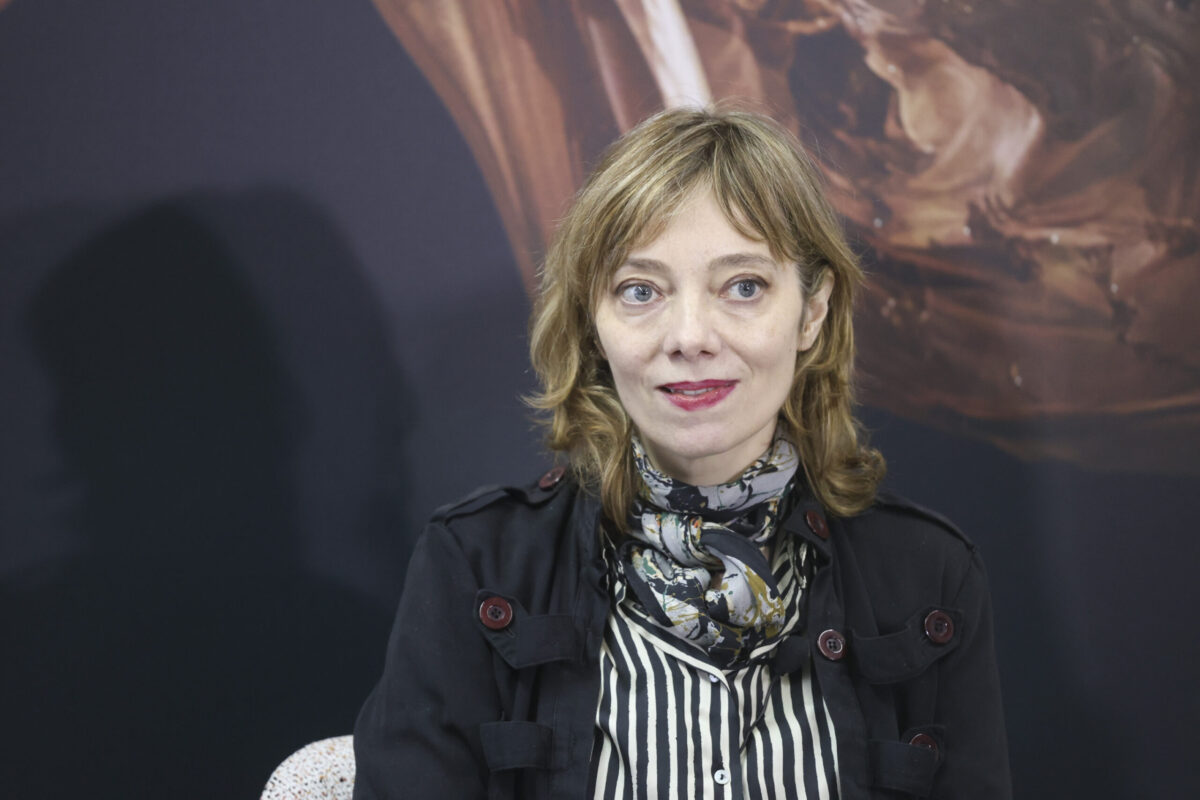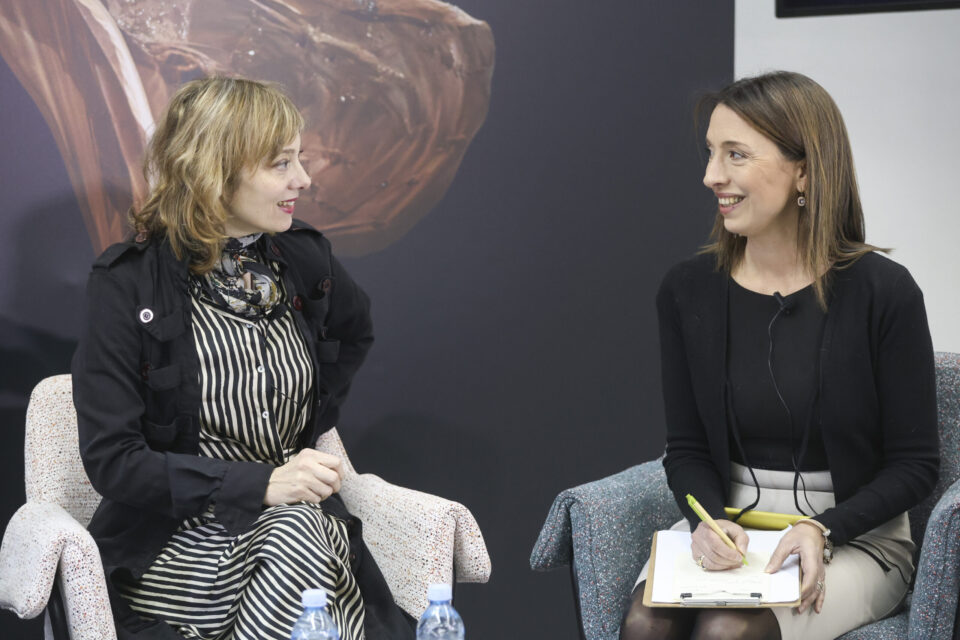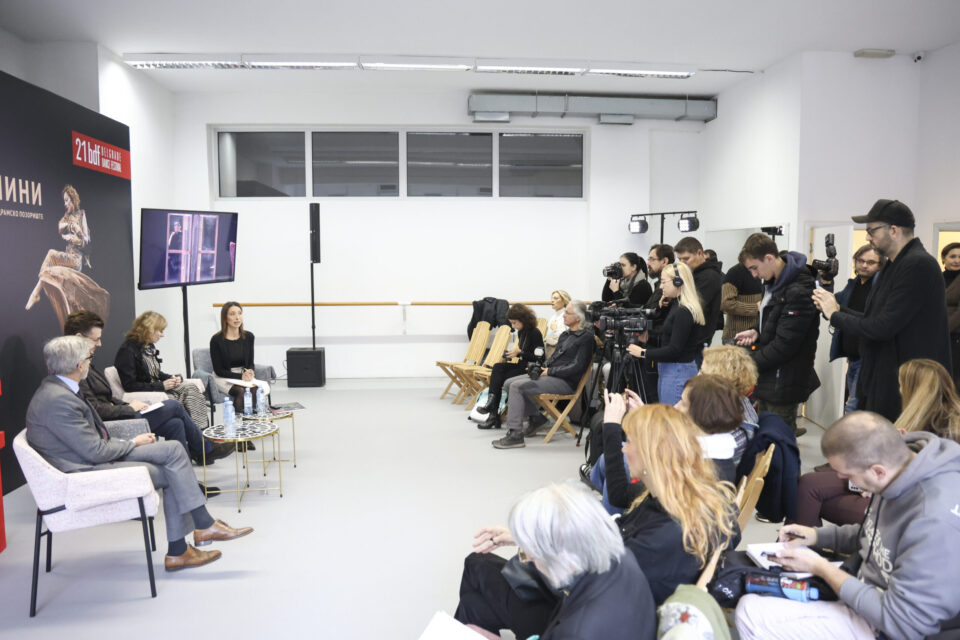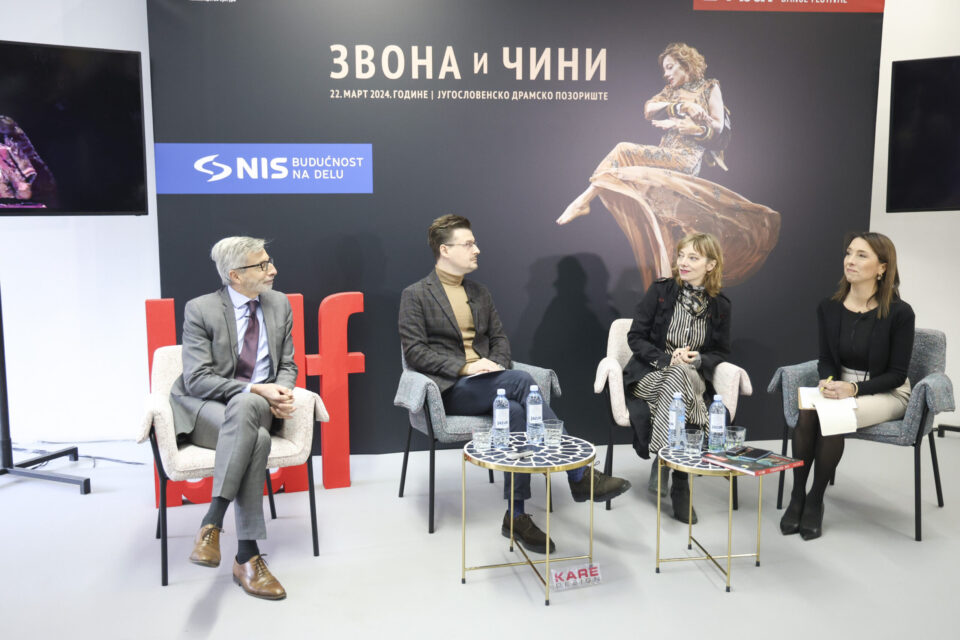Aurélia Thierrée on ‘Bells and Spells’ and the Art of Surreal Theatre
 Interview by Nikola Gudelj
Interview by Nikola Gudelj
In an exclusive conversation with Aurélia Thierrée, we delve into the mesmerizing world of her latest theatrical masterpiece, “Bells and Spells.” As the granddaughter of the legendary Charlie Chaplin, Thierrée brings a unique perspective to the stage, blending surrealism and reality in a fascinating spectacle. Join us as we explore the particulars of her craft, the fascination of the unpredictable in live performance, and how she continues to evolve in the shadow of her illustrious family legacy.
Could you share more details about yourself, the festival, and the nature of your collaboration with the Belgrade Dance Festival?
I’m looking forward to presenting our show next year here in Belgrade. We saw the theatre yesterday, and I can’t wait, I just hope you enjoy it. It will be our first time in Belgrade, and I hope not the last. It’s always difficult to describe a show that works with visuals, which is based on surprises and is based on the audience’s interpretation of what the show is about. For me, the best audience would be one who absolutely doesn’t know what they’re going to see and then discovers it in the moment. But we do have to talk about it. And I wish the press conference would happen after the show, not before.
The best audience would be one who absolutely doesn’t know what they’re going to see and then discovers it in the moment
What sparked the inspiration behind this play?
My mother creates and directs the show, and I never know exactly where her inspiration comes from. She’s very secretive about it. I discover it little by little, and I continue to discover it every night until we even start the show. So, it’s an ongoing process. It’s challenging for me when I talk about her work. I don’t know where her inspiration comes from, but I’m curious. I discovered that this show was about a kleptomaniac woman on the day of rehearsals. So, I had no idea.
What are the first reactions of the audience?
It depends on the night, and it depends on the country where we’re performing it. But it’s always very interesting to hear what people see in the show. I mean, initially, what we want is for people to have a good time and to embark on this investment of us for an hour and 15 minutes. That’s the main goal. But when they suddenly see something more into it, that’s when you know that something has worked.
 The play has some humorous segments in the show. Do you find any parts of the play that have some similarities with the work of your grandfather?
The play has some humorous segments in the show. Do you find any parts of the play that have some similarities with the work of your grandfather?
I wish, but there are two very different worlds. I hope it’s entertaining, and I hope it brings the possibility of going somewhere else during the play. That’s my main goal, but I would not compare it with my grandfather’s work. It’s not possible.
The play is described as transporting the audience into the world of strangers and wanderers, where the wanderer meets illusion. How do you balance the surreal and the magical on the stage in the performance?
I suppose the situations are not realistic, but you approach them as though they were real. I guess it’s that coupling of a surreal world, but that you enter as if it were real. A bit like a dream when you have a dream and something completely absurd happens in your dream. While you’re dreaming it, you think it’s normal. It’s only when you wake up that you think, “This was ridiculous.” But while you’re dreaming it, you embrace whatever the reality of that dream.
Is that a part of that unpredictable factor you have in theatrical performance?
No, I think the unpredictable factor is inherent to theatre, which is that you can try and do something similar every night. There’s always going to be something that’s not going to be similar. And you don’t know which part it’s going to be, because it’s live theatre and because the audience is going to be different because the performers are going to be in a different place. So, it’s an alive form because it’s never fixed.
 Does it scare you?
Does it scare you?
No, I like it. It’s a gamble. And some nights it cannot work, but it’s a gamble I love. It’s trying to make something live when you don’t know if it’s going to live or not.
What do you hope the audience will take away from your play “Bells and Spells”? Is there a particular message or feeling you aim to evoke?
No, really at the base is to take them to another world for an hour and fifteen minutes, and that it’s enjoyable and surprising. Afterwards, if it can stay somewhere in their memory, that’s a bonus and that’s fantastic. But really, it’s entertainment and it’s just to offer an escape. This would be ideal, that suddenly it’s an escape from our world.
I realise the more I progress, that it’s always a never-ending journey, you can never get to a place where you can think, “Oh, I’ve arrived”
How has your approach to theatre and performance art evolved over the years, especially considering your rich family’s history in performing arts?
Well, the theatre remains very concrete in a way and very artisanal. So, it works and then you don’t know if it’s going to continue. It’s a very present endeavour. So, I don’t know how it has evolved except that I realise the more I progress, that it’s always a never-ending journey, you can never get to a place where you can think, “Oh, I’ve arrived.” You must keep it alive and keep investigating it.
You mentioned before that you never ask your mother about her inspiration or her next play. Is that your process of work, to not know anything about the play?
Well, yeah, it’s a collaboration in that I completely trust her. And I remember the first show when she said, “Well, we’re going to start the show. You’ll be in a chest of drawers and then at the end, you’ll have a train going through your stomach.” I was like, “Wow ok.” And then we work on the numbers and when we work on the numbers I think, “Oh, is the audience going to believe that the train is going to…” And then we perform it, and it works. So, I trust her process. Whatever she decides. And kleptomania, I didn’t know much about kleptomania before. And now, like when we did it in Paris, one evening there was a kleptomania who came to me and he said, “Hello.” And his hand went to my backpack, and I got his hand and I said, “No, no, no.” This trick I know. And it also, goes with magic that you must embrace, you know, when you get the attention of someone somewhere so you can do something, it plays a little bit with the person. So really, it is magical.
